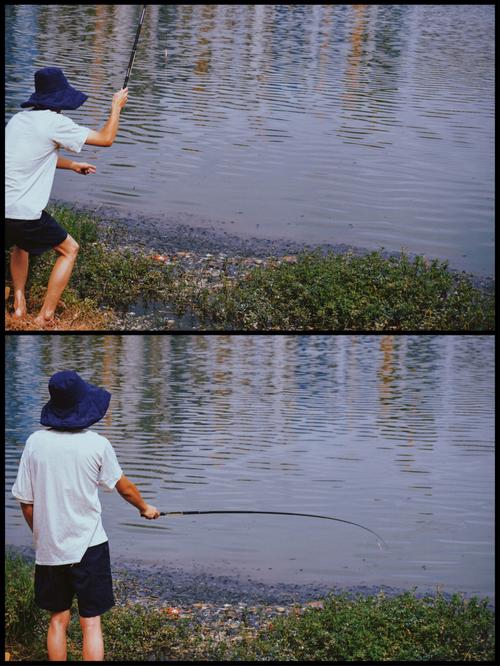Exploring the Traditional Art of Fishing in Nanchang
Nanchang, the capital of Jiangxi Province in China, is renowned for its rich cultural heritage and deeprooted traditions. Among these traditions lies the art of fishing, a practice that has been cherished by locals for generations. Let's delve into the essence of this traditional pastime and understand its significance in the fabric of Nanchang's culture.
The Historical Context
Fishing has been an integral part of life in Nanchang for centuries, dating back to ancient times when the city was known as "Hongzhou." Situated on the banks of the Gan River and surrounded by numerous lakes and water bodies, Nanchang offers abundant opportunities for fishing enthusiasts to engage in their favorite pastime.
Techniques and Methods
The art of fishing in Nanchang encompasses various techniques, each passed down through generations and refined over time. Traditional methods such as using bamboo fishing rods, handcrafted nets, and skillful baiting are still practiced alongside modern fishing approaches.
1. Bamboo Fishing Rods:
Crafted with precision and care, bamboo fishing rods are emblematic of traditional fishing in Nanchang. These rods are lightweight yet sturdy, allowing fishermen to maneuver them with ease along the tranquil waters of the Gan River and its tributaries.2. Handcrafted Nets:
Another hallmark of Nanchang's fishing tradition is the use of handcrafted nets woven from durable materials. Fishermen skillfully cast these nets into the water, employing techniques honed over years of practice to ensnare their catch.3. Baiting Techniques:
From using live bait to crafting intricate bait designs, Nanchang fishermen employ a variety of baiting techniques to lure fish to their hooks. These techniques often vary depending on the type of fish being targeted and the prevailing conditions of the water.Cultural Significance
Beyond being a recreational activity, fishing holds profound cultural significance in Nanchang. It serves as a means of connecting with nature, fostering camaraderie among communities, and preserving traditional knowledge passed down through generations.
1. Harmony with Nature:
Fishing in Nanchang is not merely about catching fish; it's about forging a harmonious relationship with the natural environment. As fishermen navigate the serene waters of the Gan River, they develop a deep appreciation for the beauty and tranquility of their surroundings.2. Community Bonding:
Fishing outings often serve as opportunities for social bonding and collective endeavor. Families, friends, and neighbors come together to share stories, laughter, and the thrill of the catch, strengthening the bonds that unite them.
3. Preservation of Tradition:
In an era marked by rapid modernization, the tradition of fishing serves as a link to Nanchang's storied past. By preserving and passing down ageold fishing techniques, communities ensure that their cultural heritage endures for future generations to cherish.Preserving the Tradition
While Nanchang's fishing tradition remains vibrant, it also faces challenges in the modern age. Environmental degradation, urbanization, and changing lifestyles pose threats to the ecosystems that sustain this ancient practice. To safeguard the tradition of fishing in Nanchang, concerted efforts are needed to promote sustainable fishing practices, conserve natural habitats, and instill a sense of stewardship for the environment among locals and visitors alike.
Conclusion
In Nanchang, the art of fishing transcends mere recreation; it embodies a way of life deeply intertwined with the city's cultural identity. From the graceful sweep of a bamboo fishing rod to the intricate weave of a handcrafted net, every aspect of this tradition speaks to a heritage rich in history and reverence for nature. As Nanchang continues to evolve, may its timeless fishing tradition endure as a testament to the enduring spirit of its people and the beauty of its natural landscapes.
[Word Count: 560]
This content is for informational purposes only and does not constitute professional advice.
版权声明
本文仅代表作者观点,不代表百度立场。
本文系作者授权百度百家发表,未经许可,不得转载。












评论